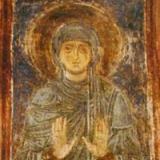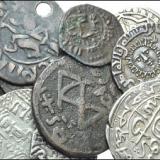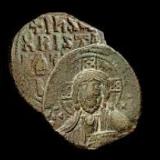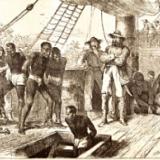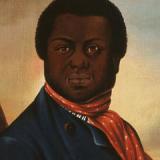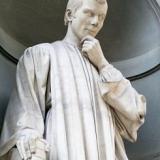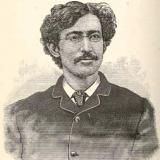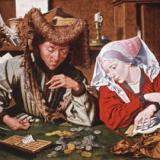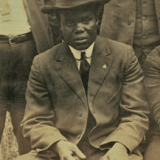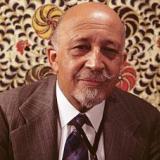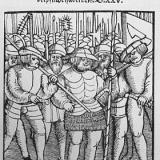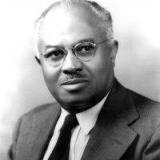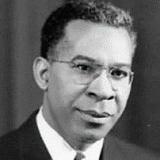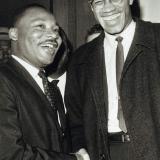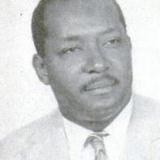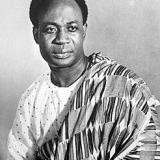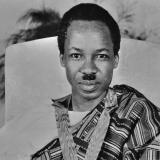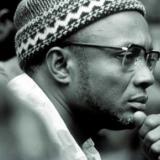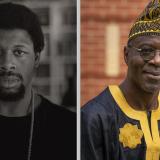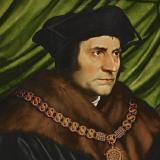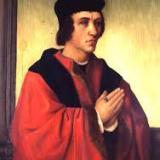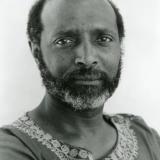Economics and wealth
Posted on
Christian ascetics like Antony, Macrina and Evagrius create a new ethical ideal by pushing the human capacity for self-control to its limits.
Posted on
Bonaventure and Peter Olivi respond to critics of the Franciscan vow of poverty, in a debate which produced new ideas about economics and rights.
Posted on
Changing ideas about money, just price, and usury, up to the time of Buridan, Oresme, and Gregory of Rimaini.
Posted on
The host of the History of India podcast joins us for the final episode on India.
Posted on
Legal and economic thought in Byzantium: the sources of the law’s authority, the relation of church and civil law, just price, and just war.
Posted on
An introduction to Africana philosophical thought as it emerged from the modern experience of slavery and colonization by Europeans.
Posted on
Questions of political autonomy and group identity in the emigration movement led by Paul Cuffe, Daniel Coker, John Russwurm and others.
Posted on
Peter celebrates reaching 350 episodes by explaining a single sentence in Machiavelli's "Discourses."
Posted on
Tommaso Campanella’s The City of the Sun and other utopian works of the Italian Renaissance describe perfect cities as an ideal for real life politics.
Posted on
T. Thomas Fortune uses newspaper editorials to put forth a theory of civil rights and sets out a plan of political action for protecting them.
Posted on
Leon Battista Alberti, Benedetto Cotrugli, and Poggio Bracciolini grapple with the moral and conceptual problems raised by the prospect of people getting filthy rich.
Posted on
Around the time of World War One, Hubert Harrison (pictured), A. Philip Randolph, and other black socialists argue that racial oppression is caused by capitalism.
Posted on
Du Bois moves to the left, and revisits and refines older positions during the latter half of his very long life.
Posted on
Faced with massive political upheaval and the rise of the Anabaptists, Luther argues for a socially conservative version of the Reformation.
Posted on
Sociologist E. Franklin Frazier critiques the Harlem Renaissance and the “black bourgeoisie” for failing to embrace values that will empower black Americans.
Posted on
Two Trinidadian political thinkers: sociologist Oliver Cox analyzes the nature of racial prejudice, and historian Eric Williams connects capitalism to slavery.
Posted on
After 1963, the views of Malcolm X and MLK came closer together, on topics including internationalism, political engagement, and economics.
Posted on
The Cuban activist and author Juan Rene Betancourt urges racial solidarity and reckons with the revolution under Castro and the island’s turn towards Communism.
Posted on
The first leader of independent Ghana, Kwame Nkrumah, writes against neocolonialism and in favor of socialism and Pan-Africanism.
Posted on
The first leader of independent Tanzania grounds his socialist ideas in traditional African values.
Posted on
Amílcar Cabral, leader of a revolution against colonialism in Guinea-Bissau and Cape Verde, rethinks culture and Marxist theory as bases for his struggle.
Posted on
Two scholars of the same name join us to shed further light on freedom fighter and political theorist Amílcar Cabral.
Posted on
What is the message of the famous, but elusive, work Utopia, and how can it be squared with the life of its author?
Posted on
The evolution of ideas about kingship and the role of the “three estates” in 15th and 16th century England, with a focus on John Fortescue and Thomas Starkey.
Posted on
Cedric J. Robinson reflects on the power and limitations of Marxism while charting the past and prospects of black radical thought.
Posted on
Iberian expeditions to the Americas inspire scientists, and Matteo Ricci’s religious mission to Asia becomes an encounter between European and Chinese philosophy.

